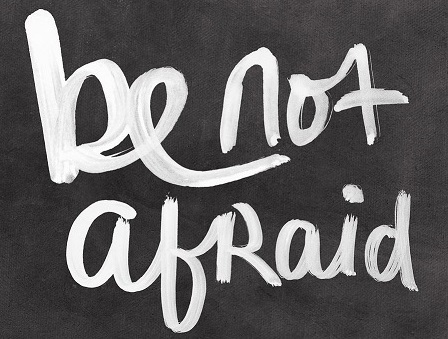The View
I recently spent a morning with religious education teachers and diocesan workers from the Diocese of Derry talking about the teaching of relationship and sex education. I met a wonderful group of lively, compassionate, caring, interested and dedicated young people.
The following day in Galway, I met priests, brothers and sisters who belong to religious congregations. The eldest, Sr Alberta, was 92 and approaching the 70th anniversary of her profession as a Dominican nun, the youngest, Fr Eddie, was a Jesuit who looked as if he was in his thirties. Two very different groups but united in two ways – their common Catholic faith and their understanding of what it meant and why it mattered.
Both the young people in Derry, and the religious in Galway were contemplating the fundamental call to holiness and the living of lives in the world today. The religious were looking back to how it was for them as they answered the call to vocation in the Church, what they had done and continue to do in that vocation, and how they continue to live the call to holiness in a world which has changed so much.
Holiness
The young teachers from Derry were contemplating how best to help young people to grow in Faith, and to understand the Church’s teaching about their call to holiness so that they know that they are loved by God, made to love God and one another and know how to live their lives as Catholics today. This is a real challenge, for what they teach is very often so far away from the experience of many of their students.
On occasions like these I am always humbled by the goodness I encounter, and I can learn so much so fast. It was like that this weekend.
In a world in which there is so much talk of the decline of the Catholic Church, it was good to hear about the work done over decades in Ireland, England, Brazil, Kenya, Uganda, Pakistan and many other countries.
All of us – young and old – face significant challenges to Faith. It is not fashionable now to believe in God. Many sneer at Faith, call it naive, (and worse) and reject it. Yet I do not think that many people who do so really understand what our Faith teaches.
Do they understand that the basis of our Faith is not just going to church on Sunday, but rather it is about that most fundamental of relationships – that which each of us have with God. We believe in God, and we believe that God made us in his own image and likeness. Believing that God loves us and that he lives in each of us, we learn to love him, and so we can come to love ourselves, and if we do that we will be able to love others as we are called to do.
Do they understand that we believe that love of God is the basis for all the other relationships in our lives, especially the personal ones? It’s about being able to see our blessings, and be grateful for them, and about developing the ability to be strong and courageous when things don’t go right, learning to trust God, and to discern that what we want, or what we want to do, is not necessarily right. It’s about having the courage to face the fact that the purpose of life is not to enjoy one long party, and that those who portray it thus, as so much of social media does, are actually wrong. It’s about working out how to live positive, fulfilled lives, and understanding that we can do so, even with very little. It’s about turning away from the cult of the body perfect – how many people, male and female, suffer because their body is not exactly as they would wish it to be. How many carry false images of themselves, and live wanting to be like those whom they see in social media, on TV, in magazines etc.?
Bizarre message
Our Church teaches that love-making is for those who are married only. Almost a bizarre message in today’s world, this belief that God made man and woman who may commit themselves to each other exclusively for life, to have and to hold, to love and to cherish, for richer, for poorer, in sickness and in health, all within the wider family of the Church.
We believe too that is within the most intimate expression of human love inside family, that children are to be conceived, born, provided with love and stability, whatever the economic circumstances, that they too may grow in the love of God, as they journey home to him who made them and loves them.
It is because we believe in this love, that we believe that all life is sacred from conception to its natural end, and that each person is created by God. We do not believe that it is right deliberately to terminate a life. Abortion involves killing babies: there is no other way to describe the act of injecting chemicals into a baby’s heart to stop it beating; of cutting babies up in the womb in order to extract them limb by limb; of inducing the birth of babies who might well live if they were left to grow in the one place where they should be safe, and, where they survive induction, leaving them to die. The pro-choice lobby argues for safe abortion. There is no safe abortion, just clinical management of the death of a baby.
We believe that God made each of us for a purpose which is part of his divine plan for the world. We believe that we have a calling to live in love, with total generosity as Christ did, giving all we have for others.
It is a fact that members of our Church, some Catholics, have done wrong, sometimes terrible wrong, but the essential teaching of Christ is as real, as valid and as relevant today as it was 2,000 years ago when that young man, who was the son of God, walked the dusty roads of the Holy Land.
500 years ago, St Teresa of Avila wrote: “Christ has no body now on earth but yours; no hands but yours; no feet but yours. Yours are the eyes through which the compassion of Christ must look out on the world. Yours are the feet with which He is to go about doing good. Yours are the hands with which he is to bless his people now.”
Many people in Ireland, like the young people from Derry and the slightly older people from Galway whom I met, understand what St Teresa of Avila was reminding them of, and they live it, giving generously with the love that never fails. That is why our Church does not deserve to die, as has been suggested. Jesus told us: “Be not afraid, and do not let your hearts be troubled. I am with you always.”
Believing this, we know that our Church will not die.


 Nuala O’Loan
Nuala O’Loan
